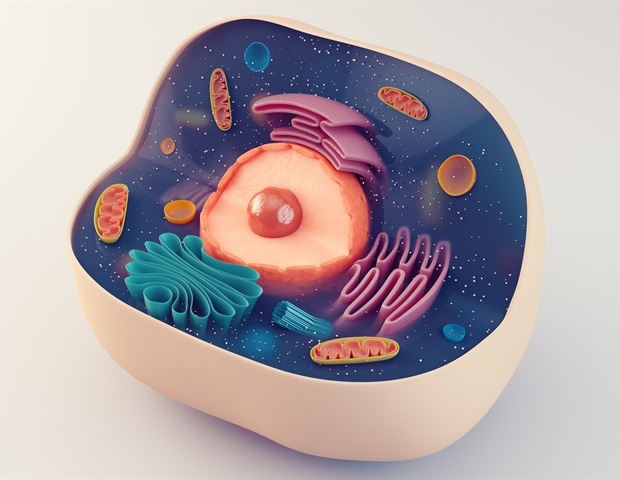Binghamton University will play a key role in a federal grant of up to $42.8 million to develop an implantable device that acts like a living pharmacy to treat inflammatory diseases. The Mayo Clinic is the preferred site for this groundbreaking research, and Binghamton researchers will help bioengineer the transplanted cells.
The research is supported by the Advanced Research Projects Agency for Health (ARPA-H), an agency of the U.S. Department of Health and Human Services that funds potentially transformative biomedical and health breakthroughs.
Engage Assess SecretE (EASE): A platform to treat chronic inflammation aims to trigger a “cell factory” in the body that could treat inflammatory bowel disease (IBD), including Crohn’s disease and ulcerative colitis. Ultimately, the hope is to use it for disorders linked to an overactive immune system, such as rheumatoid arthritis and psoriasis.
The EASE project brings together more than 15 researchers from Mayo Clinic, University of Minnesota, Case Western Reserve University, University of Texas at Dallas, University of California Davis, Binghamton University and biotechnology companies EnLiSense and Sersense Inc. The team includes experts in cell encapsulation, biosensing, cellular engineering, wound healing/dermatology, bioelectronics and manufacturing.
I am very happy that this project will have a high societal impact and relevance for patients. It represents an excellent example of scientific convergence, where clinicians, biologists and engineers come together to produce a sophisticated solution to improve patient care. »
Alexander Revzin, biomedical engineer, Mayo Clinic scientist and principal investigator for EASE
At Binghamton, Associate Professor Ahyeon Koh will focus on creating an electrode array to generate the oxygen needed to sustain the cells that produce pharmaceutical reagents.
“Our research group aims to electrochemically generate oxygen to ensure cell survival during implantation,” she said. “I’m responsible for developing the ‘cafeteria’ in the ‘factory’, making sure they ‘eat’ properly. »
Koh-; faculty member, Department of Biomedical Engineering, Thomas J. Watson College of Engineering and Applied Science – ; became part of the EASE project through the BME Chair and Distinguished Professor Kaiming Ye, who established the connection between her and Revzin.
“Winning an NIH APAR-H grant is an exceptional recognition,” Ye said. “I am pleased that Dr Koh will be part of the team led by Dr Rezvin, a renowned biomedical engineer. She will have the opportunity to work with the world’s leading researchers to advance the treatment of inflammatory bowel disease through her innovations. research in electro-oxygenators. »
Nearly 70,000 Americans are diagnosed with inflammatory bowel disease each year. Flare-ups can cause stomach cramps, diarrhea and rectal bleeding. In the absence of a cure, treatment is limited to relieving symptoms.
The standard treatment for IBD has been monoclonal antibody treatment over a period of one year. This requires the patient to return to the clinic every two to eight weeks for an infusion. A recent study showed that one in five patients regularly forget to take their dose, which can increase the risk of relapse and lead to drug resistance.
Since arriving at Binghamton in 2016, Koh has pursued a variety of research topics, including “smart” bandages, wearable sweat sensors to detect medical conditions, and transforming old CDs into flexible bioelectronics.
“This method is intended to treat intestinal diseases, but the whole platform is structured such that if the antibodies produced by the cells are modified, this could be used as a transformative treatment for other targeted diseases. The fundamental ideas could be a game-changer,” she says. “It’s a huge project, so the responsibility and pressure are also huge. The project team is very smart though, so even while we were putting the proposal together there were a lot of wonderful ideas. »
Koh calls collaborating on the EASE project “an absolutely phenomenal experience.”
“Everyone has so much expertise in their own area of research, great minds working on a big project,” she said. “Having the opportunity to participate is wonderful. »


